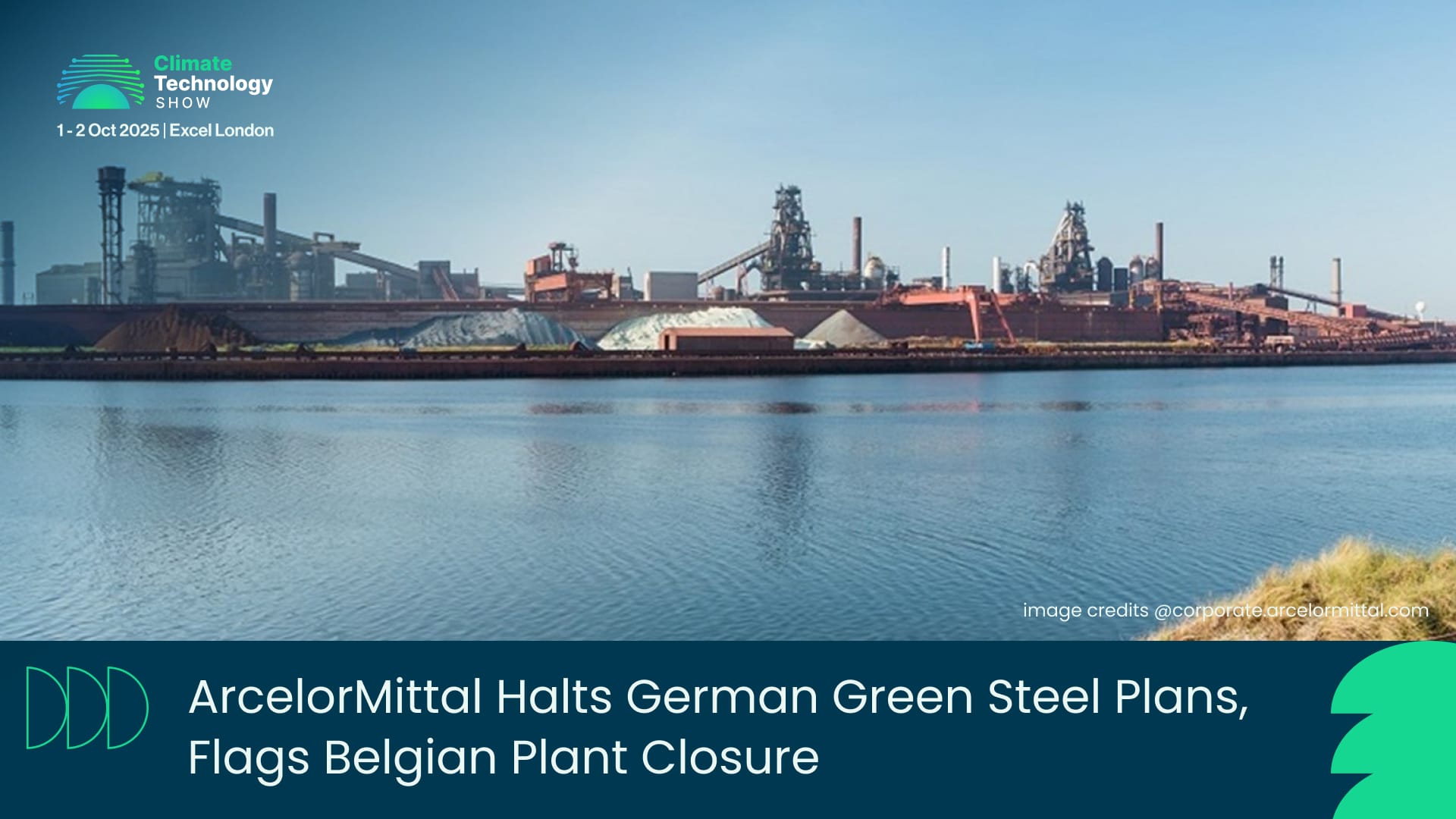BRUSSELS / BERLIN, June 20, 2025: Europe’s largest steelmaker ArcelorMittal has abandoned its plans to convert two major German steel plants to hydrogen-powered production and is also warning that it may shut down its flagship green ethanol plant in Belgium. The twin decisions deliver a significant blow to Europe’s efforts to decarbonise its heavy industry.
The company said it will decline €1.3 billion in public subsidies intended to support the transition of its Bremen and Eisenhüttenstadt facilities from coal to hydrogen-based steelmaking. It cited uncompetitive energy costs in Germany and uncertainty about the country’s future energy mix as key reasons.
“Even with the financial support, the business case for moving ahead with this transformation is not strong enough, which shows the scale of the challenge,” said Geert van Poelvoorde, chief executive of ArcelorMittal Europe.
High energy costs have become a mounting concern for German manufacturers who are also contending with global competition and the lingering effects of geopolitical shifts. Germany’s industry was hit hard following the country’s rapid departure from Russian gas in 2022 after the full-scale invasion of Ukraine.
In November, steel giant Thyssenkrupp announced plans to cut its steel workforce by 40 percent. New German Chancellor Friedrich Merz has since pledged to revive the country’s industrial competitiveness by reducing energy costs, streamlining regulation and investing heavily in infrastructure. However, these goals are weighed against Germany’s legally binding target to reach carbon neutrality by 2045.
The German economy ministry expressed regret over ArcelorMittal’s decision, but framed it as a company-specific issue. “The important thing here is that no funds had yet been transferred,” said a spokesperson. “And so no repayment is required.” The government has earmarked around €7 billion in subsidies for green steel projects, including the amount for ArcelorMittal. Three other projects are reportedly still moving forward.
Meanwhile, ArcelorMittal has also cautioned that it may shut its flagship ethanol plant in Ghent, Belgium, because of EU regulations that prevent the company from classifying its product as green, thereby undermining its ability to sell it at a sustainable price.
“It’s probably the biggest first facility that was made in Europe to decarbonise,” said Frederik Van der Velde, chief executive of ArcelorMittal Belgium. “And in the end, in the worst scenario, we will have to stop because it’s not possible to survive given the new context that was created by Europe after we had taken the decision [to go ahead],” he said.
The Ghent facility, announced in 2017, was designed to produce 60,000 to 65,000 tonnes of ethanol per year using new technology that converts waste carbon dioxide from the steelmaking process into fuel. The project was viewed as a potential blueprint for other decarbonisation efforts across the ArcelorMittal group.
Van der Velde also questioned the EU’s broader strategy, warning that hydrogen remains far from economically viable at scale. “Many more years [are needed] to become economically viable,” he said, adding that there had been “excessive focus on hydrogen in Europe.”
The European Commission has prioritised industrial decarbonisation while also trying to maintain industrial production across the bloc. It has set a target for renewable hydrogen to account for 10 percent of Europe’s energy mix by 2050, but doubts remain about the feasibility of that goal.
The setbacks announced by ArcelorMittal highlight the fragile intersection of climate policy, industrial competitiveness and economic viability. As Europe races toward ambitious climate targets, its heavy industries continue to struggle with the practical and financial realities of large-scale transformation.

